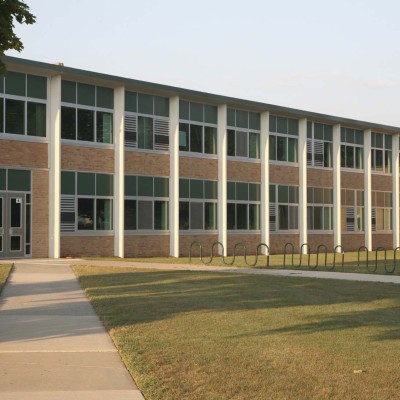New Jersey DEP mandates that each school adopts and implements an Integrated Pest Management (IPM) for the school. Moore Control specializes in IPM for schools and other care centers such as daycare facilities, nursing homes, and churches. Commercial properties include restaurants, warehouse facilities, and office buildings.
New Jersey law states that each school shall adopt and implement an integrated pest management (IPM) policy for the school property consistent with the model policy, available at the NJDEP Pesticide Control Program website at http://njipm.org or at the Rutgers Cooperative Extension at http://www.pestmanagement.rutgers.edu/IPM/SchoolIPM
An effective IPM program can manage the risks from both pesticides and pests and protect human health by
• reducing student and staff exposure to pesticides
• suppressing pests that may carry vector allergens or disease pathogens
• reducing environmental pollution
Implementing IPM may also provide cost savings by
• reducing pest damage
• reducing unnecessary pesticide applications
• minimizing emergency repairs
• improving maintenance and sanitation
• reducing waste caused by infested food products

When pests are suspected, Moore Control’s certified and experienced technicians will implement the following components of integrated pest management:
• Communication. Whomever notices a problem should report it immediately to the school IPM Coordinator, who should then follow the order of reporting outlined in the policy.
• Inspection. Our technicians will thoroughly inspect and evaluate each situation, beginning with the observations reported.
• Identification. Once we have identified the pest (insect, rodent, or animal species), we will suggest a program to fit the circumstance to the IPM Coordinator.
• Source elimination. Non-chemical procedures are always considered first. If there’s a source that is attracting the pest, we will eliminate or create barriers to it, both interior and exterior.
• Low-impact or minimum risk pesticides may be used as a control method and do not require notification; however, the law requires that we follow the label.
• Spot treatments or limited pesticide applications will be done only after consulting the IPM Coordinator and providing 72-hour notification to staff, students, and parents.
• Recordkeeping. Specific to schools, all required forms will be completed as required. Each school must keep records of pesticide applications on school property for three years from the date of application and for five years after applying pesticides for termite control. Moore Control provides these records. A pest control log book must be used to provide information to the school staff, IPM coordinator and our technicians. It should include accurate records and specific details such as date, time, and location of pest sighting; the name of the person who reported the sighting; and a description and number of pests sighted. All actions used to reduce or eliminate the problem are also recorded and must remain on file.

• CORE – (Safety)
• 7A – (General Household)
• 7B – (Termite and other wood-destroying insects)
• 7D – (Food Processing)
• 3B – (Turf/Lawn/Weeds)
